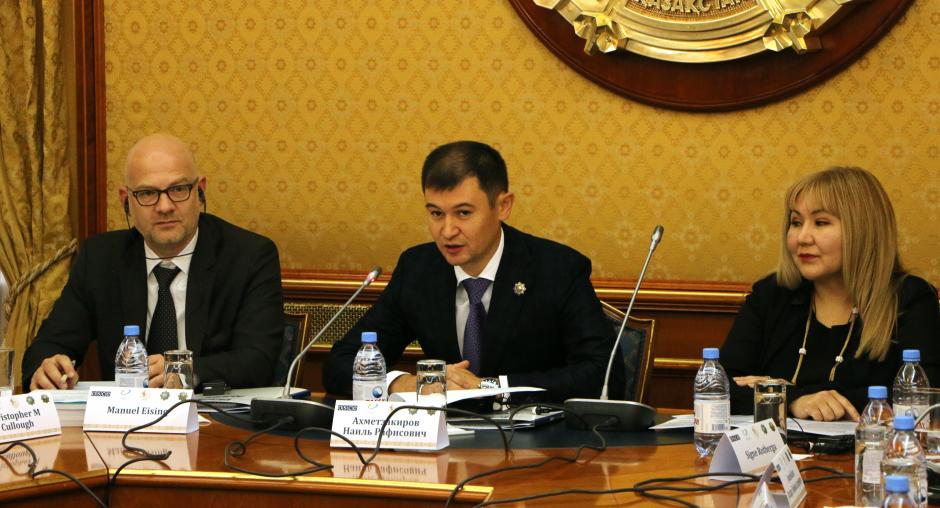Criminal justice responses to terrorism focus of joint OSCE-UNODC seminar in Kazakhstan

A two-day seminar on strengthening rule of law-compliant criminal justice responses to terrorism, which brought together over 30 practitioners from the judiciary, law enforcement agencies and prison management, concluded on 5 October 2017 in Astana.
Organized by the Action against Terrorism Unit of the OSCE Secretariat’s Transnational Threats Department in close co-operation with the OSCE Programme Office in Astana, and forming part of a joint UNODC-OSCE initiative for Central Asia on criminal justice responses to terrorism, the seminar focused on good practices detailed in the Global Counterterrorism Forum’s Rabat Memorandum, which offers insights into effective terrorism prevention and prosecution, while emphasizing respect for applicable international law.
Experts in the field of criminal justice presented the legal parameters and practices developed in Germany, the Netherlands, Poland, the U.K., the United States of America and Kazakhstan, as well as work by the private financial sector in this area.
“It is no secret that the Internet is a key channel for radicalization, especially among youth,” said Nail Akhmetzakirov, Acting Rector of the Academy of Law Enforcement Agencies under General Prosecutor's Office of Kazakhstan. “Therefore we understand that the effectiveness of our fight against terrorism depends upon the level of co-operation of all law enforcement bodies and their ability to see the big picture in all spheres affected by terrorism.”
“To effectively combat terrorism, governments need to employ a multifaceted approach that utilizes all of the best practices for law enforcement, prosecution and the judicial process,” said Colin McCullough, Political Officer at the OSCE Programme Office in Astana. “This will best ensure that the rights of the innocent are protected and it will instil faith in the public that the justice system will protect them and their rights.”
Among other topics, participants discussed effective co-ordination mechanisms among domestic government agencies and the importance of international co-operation, particularly when being confronted with terrorism. The seminar also highlighted the need to ensure the protection of all sides involved in terrorism cases, as well as for the development of policies for the effective incarceration and reintegration of convicted terrorists.
The event in Astana was the seventh in a series of seminars, which is funded through extra-budgetary contributions by the United States of America. Seminars previously took place in Nicosia (2014), Skopje, Sofia, Tashkent (2015), Sarajevo (2016) and Pristina (07/2017).
